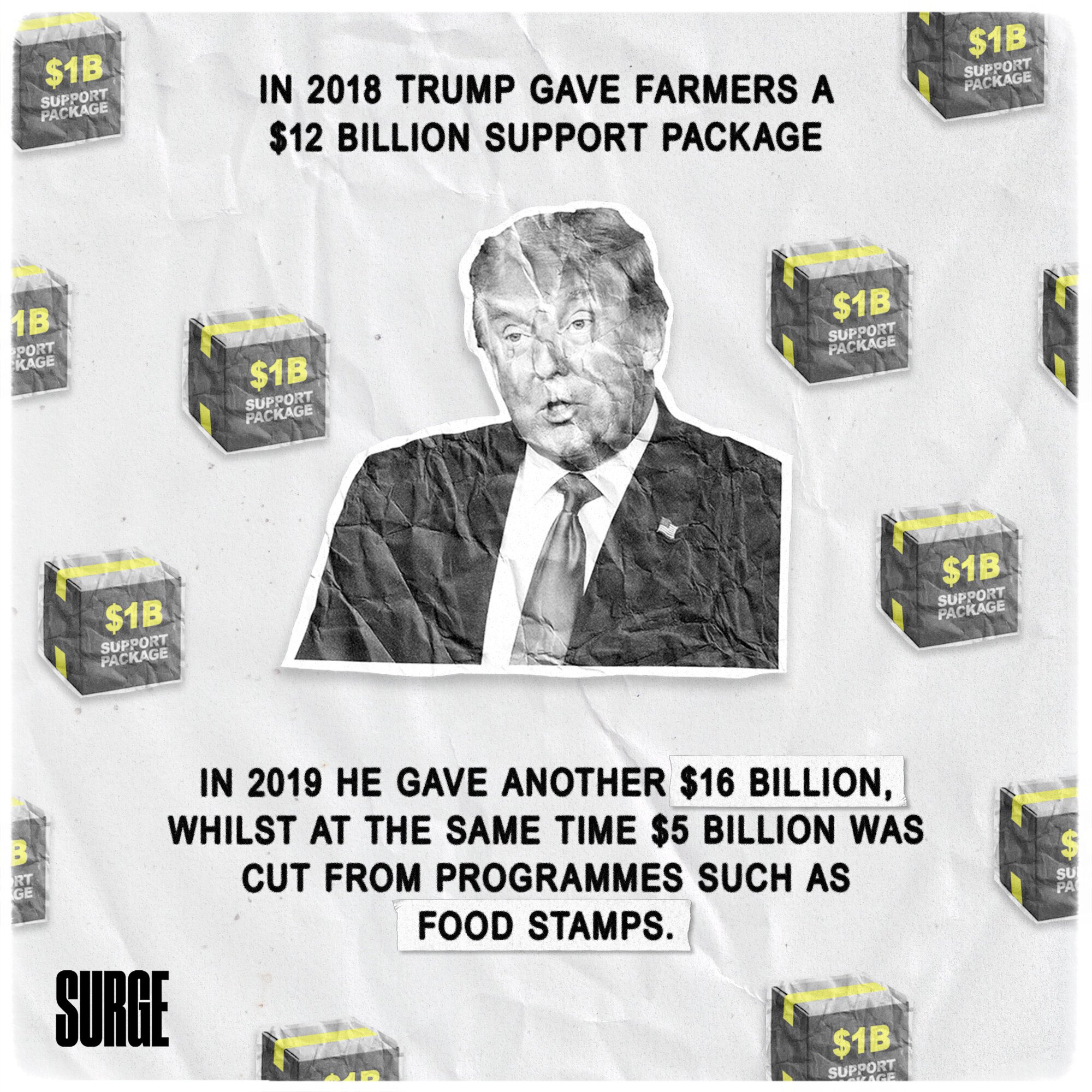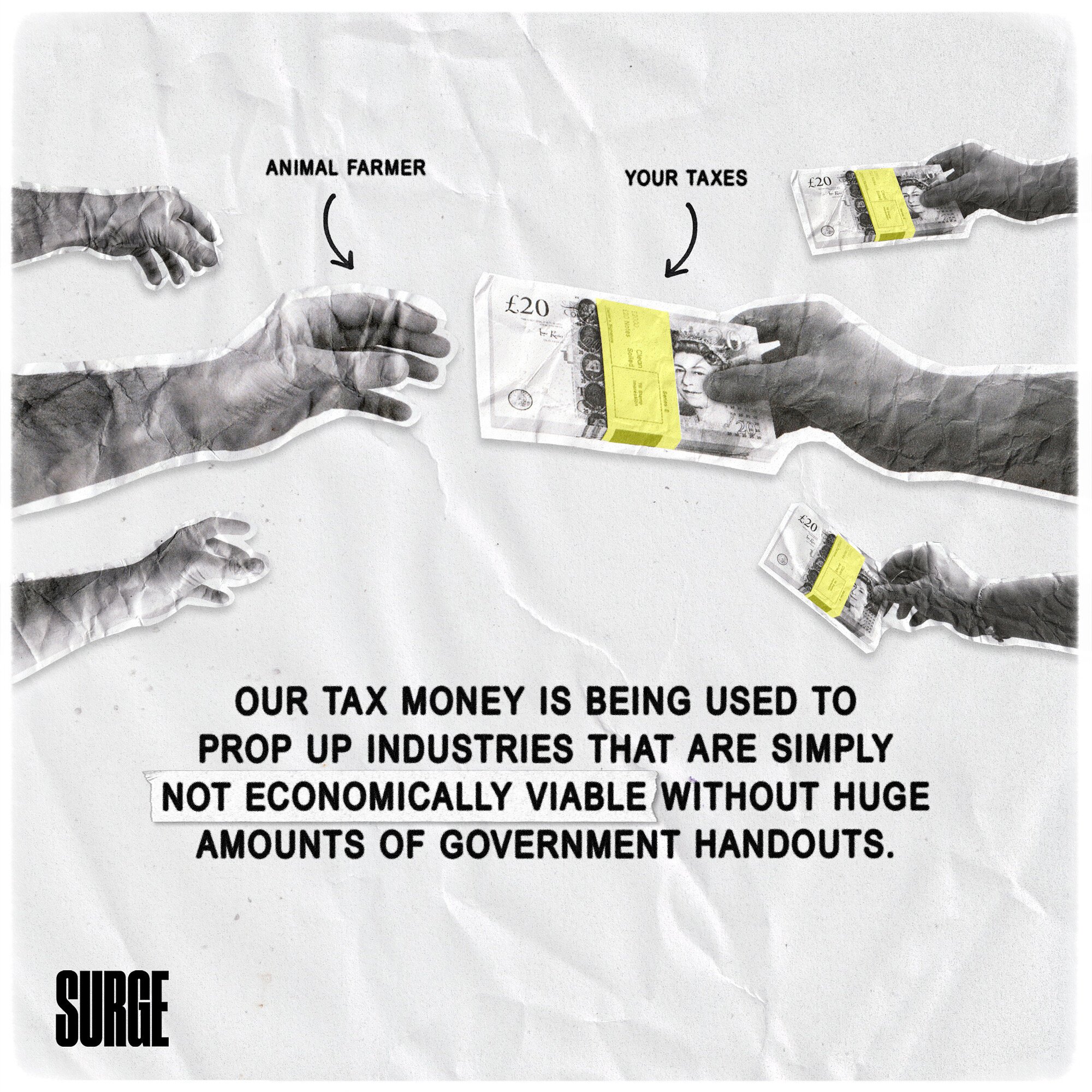Have you ever wondered why a cheeseburger can cost less than fruit?
Have you ever wondered why the cost of meat can be cheaper than a punnet of blueberries? Or why you can buy burgers in fast food chains for as little as one dollar? One of the reasons for this is agriculture subsidies. But, what exactly are agriculture subsidies and how do they work?
Government subsidies are financial grants, funded by public tax money and given by the government to private institutions or public entities in order to drive down production costs and make whatever industry is being subsidised more financially viable.
Agriculture subsidies are some of the most well known and also some of the most important subsidies that exist, especially in terms of scale and societal significance. Agriculture subsidies are useful for protecting the nation’s food supply and can help farmers during unforeseen events. However, when it comes to subsidies, it’s not all positive.
For example, it is reported that globally the public provides more than $1m per minute in global farm subsidies, however only 1% of that figure is being used to benefit the environment.
Globally, the majority of agriculture subsidies for food go towards animal farms and crops such as corn and soybean, the majority of which is used as animal feed, in essence the majority of our tax money is being used to drive down the prices of the food that is destroying our environment, causing our leading diseases and illnesses, drastically increasing our risk from infectious zoonotic disease, and causing suffering to tens of billions of animals every single year.
The animal farming industries are given so much taxpayers money that, on average, each head of cattle in Europe gets a subsidy from the taxpayer worth $2.20 a day, which means that the annual income of an EU dairy cow exceeds that of half the world's human population.
To provide another example, in the UK, according to the government department DEFRA, around 90% of the annual profit of famers who graze livestock, comes from agriculture subsidies, with some farmers only making £12,000 a year, even though they are given £44,000 in subsidies. Whilst, for comparison, only 10% of fruit farmers annual profit came from subsidies. In essence, our tax money is being used to prop up industries that are simply not economically viable without huge amounts of government handouts.
“In essence, our tax money is being used to prop up industries that are simply not economically viable without huge amounts of government handouts.”
What about in the US?
It’s a similar story in the US, where tens of billions of dollars are given to farmers every year.
On top of the regular subsidies, in 2018 Trump gave farmers a $12 billion support package and in 2019 he gave another $16 billion, mainly because of the trade war with China. However studies from several economists showed that the amount given to farmers was worth double the amount they were actually losing from the trade war.
And even though farmers were being compensated double the amount they were losing and are the biggest recipients of corporate welfare, at the same time $5 billion was cut from programmes such as food stamps that help provide food for low income families.
Subsidies don’t have to be bad, but there is clearly a need for urgent reform, when taxpayers money is being given to perpetuate systems of farming that are devastating for the environment, rely on animal suffering and is being used to prop up systems of farming that are struggling to survive even with the tens of thousands of pounds from the tax payer.
We may see the price of meat, dairy and eggs and believe them to be cheap, but the system is built on a false economy, these products are not environmentally sustainable or humane, and nor are they financially sustainable either.
Ultimately, as it stands, subsidies are being implemented in an absolutely devastating way, but it does not need to be this way, the return of forests in Costa Rica followed the elimination of cattle subsidies and the implementation of payments for improving nature, and this could be a story replicated all over the world.
We have the chance to profoundly help the natural world, providing healthier food at a cheaper cost, as well as helping struggling farmers, and it begins with changing the way we eat, for as long as we keep buying these products, the governments will keep subsidising the industries that produce them.
But by changing how eat, we are demanding a reform in how our tax money is spent.










